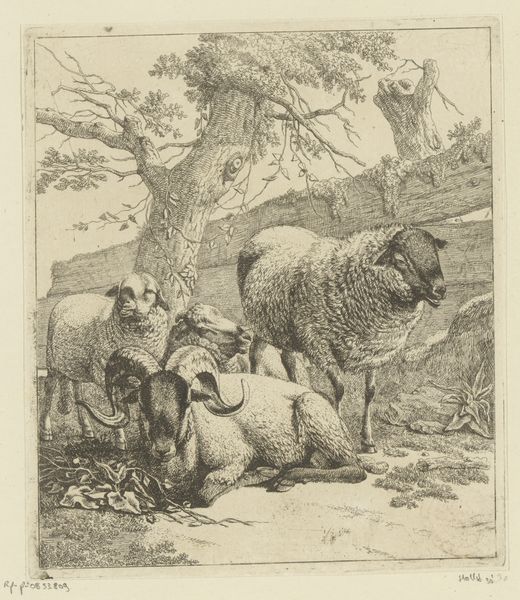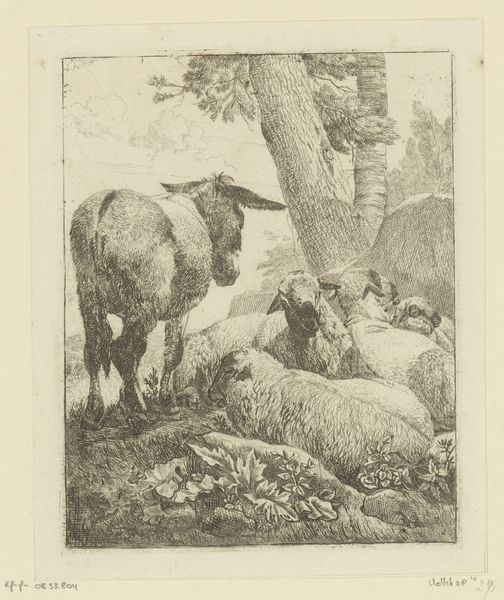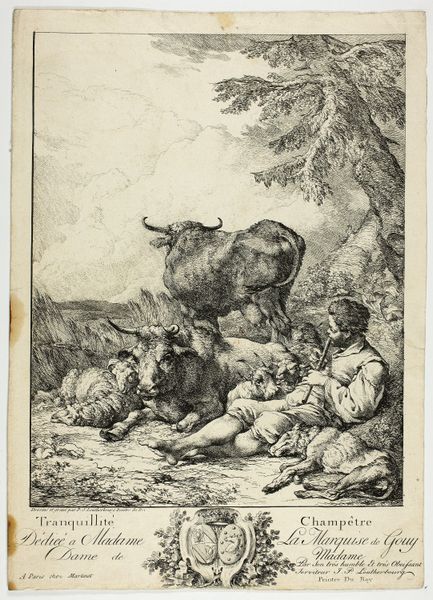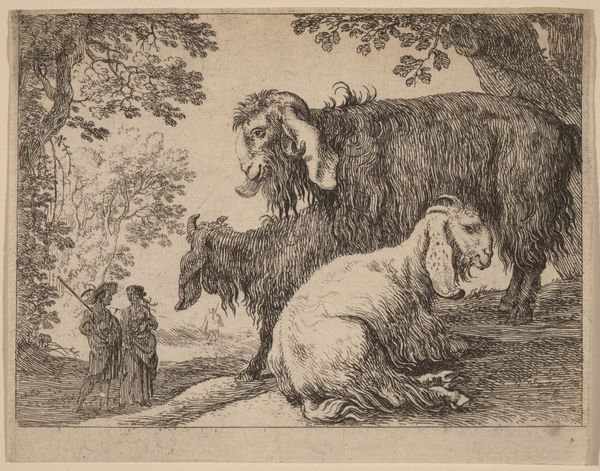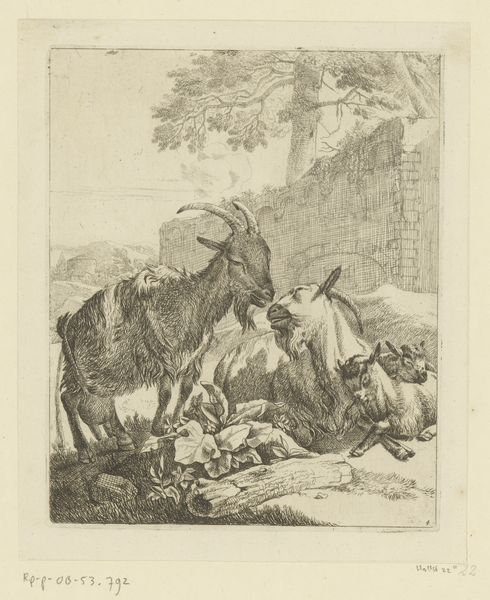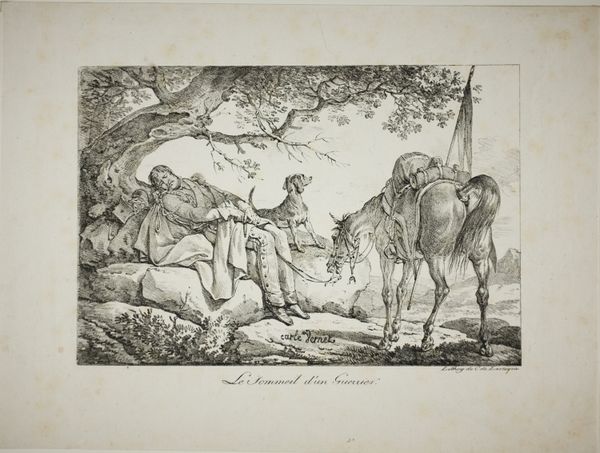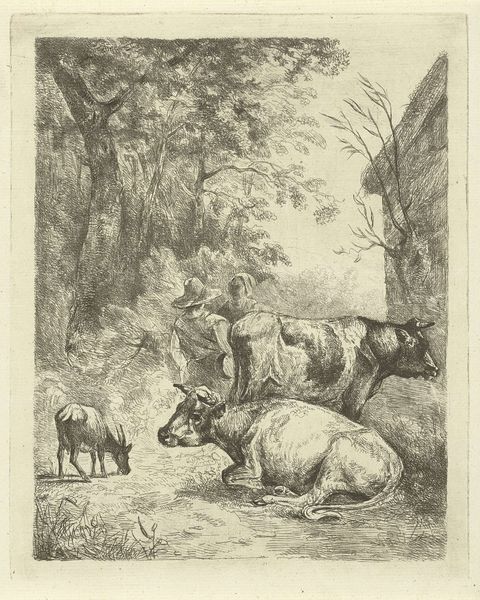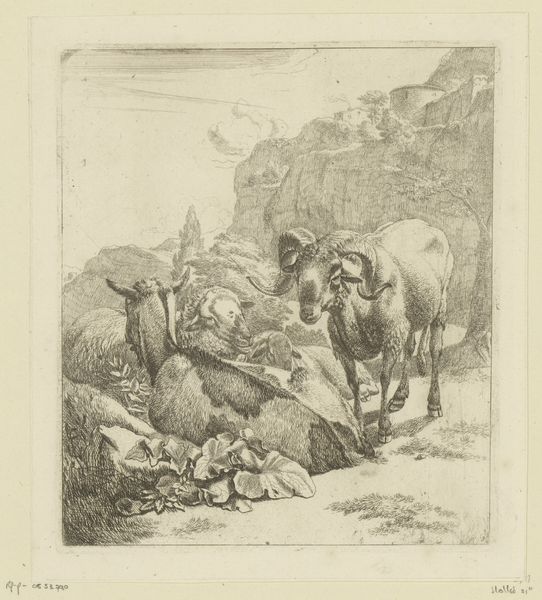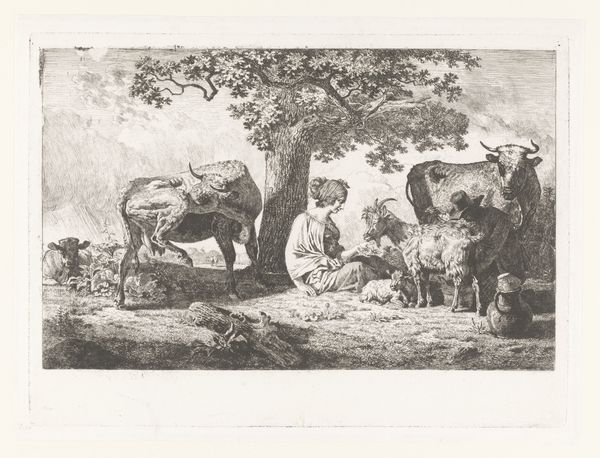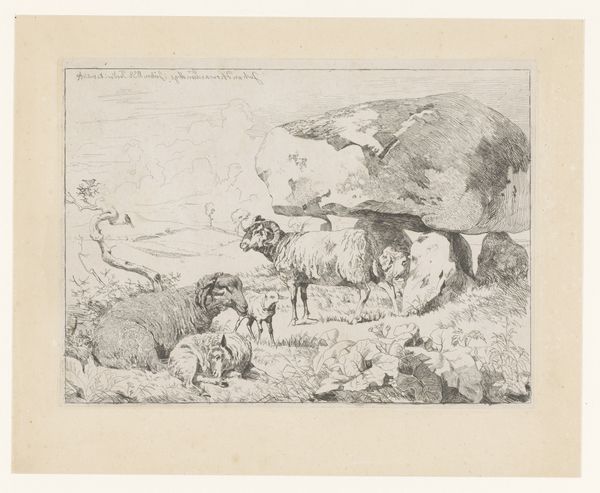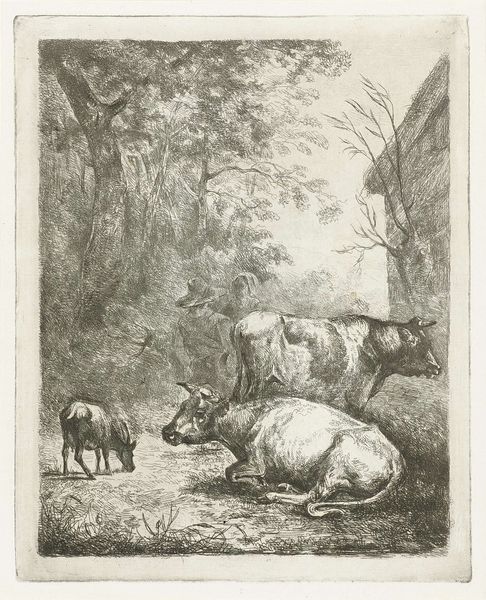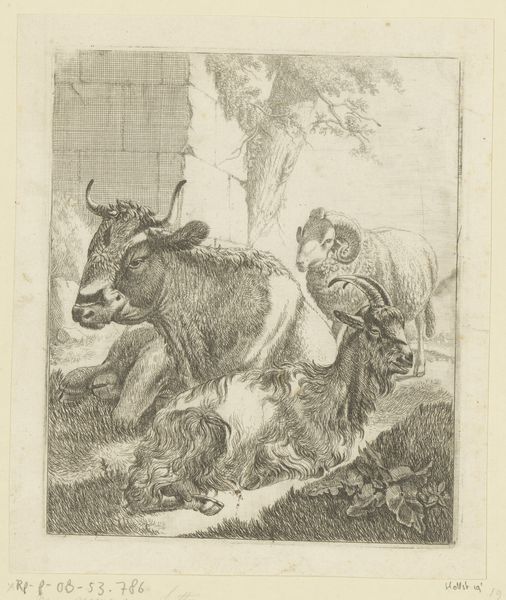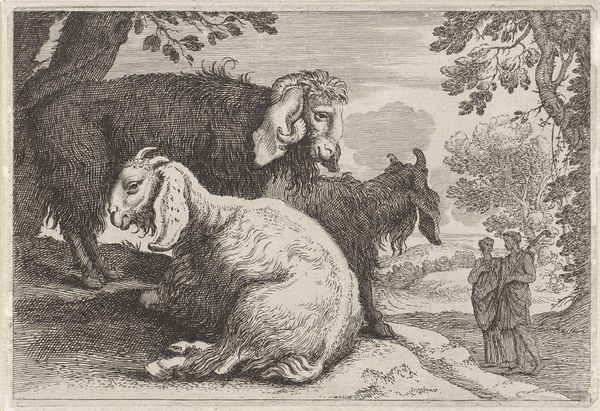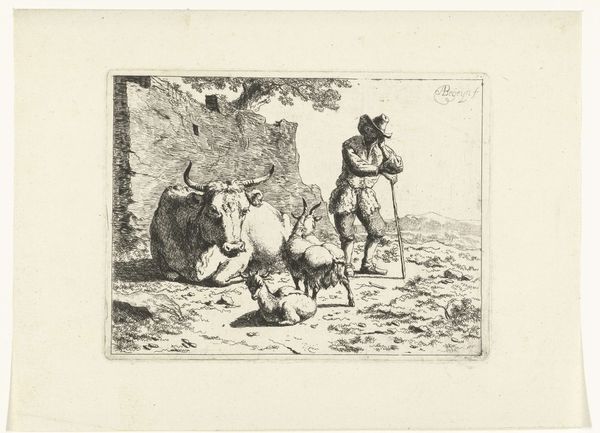
print, etching, engraving
#
baroque
#
animal
# print
#
etching
#
landscape
#
11_renaissance
#
genre-painting
#
engraving
#
realism
Dimensions: height 190 mm, width 162 mm
Copyright: Rijks Museum: Open Domain
Curator: What a tranquil gathering! It reminds me of a Renaissance pastoral scene, though rendered with an incredible attention to realistic detail. Editor: Indeed. We are looking at “Liggende koe, geit, schaap en lam,” or “Lying Cow, Goat, Sheep, and Lamb,” an etching by Johann Heinrich Roos, dating from approximately 1668 to 1670. You can find it here at the Rijksmuseum. What’s striking about this piece from a formalist perspective is Roos’ use of line. The density and direction of the lines create not just form, but texture – the coarse hair of the bull versus the wool of the sheep, for example. The contrasts offer depth and palpable substance. Curator: Roos really nailed that shaggy, just-got-out-of-bed look for the bull, didn't he? It’s almost comical, yet there’s a strong sense of naturalism too. What’s interesting, compositionally, is how Roos has created this pyramid shape with the animals. The monumental bull grounds it, then you have these receding layers of livestock life. Editor: Precisely! And consider how he positions them in front of what appears to be a ruin or crumbling archway, which acts as an aperture and a structural backdrop. The composition evokes both realism and a carefully constructed tableau. It’s not simply a slice of pastoral life. Curator: No, it isn’t, there's a quiet tension between wildness and cultivation. Though it's idyllic on the surface, those horns on the bull hint at raw animal power, just barely contained. Then again, that broken arch tells of civilization crumbling slowly into dust and wild grass again. Editor: You are absolutely right to observe that tension. One could read that structural contrast, that of an edifice overwhelmed by time, as a comment on permanence and change. Perhaps Roos wants to portray a world in a continuous flux. That would align well with the late Renaissance obsession for themes around morality and the ephemeral nature of earthly existence. Curator: A melancholic sort of beauty then, but maybe beauty all the same. I came here today to recharge, and now find myself thinking about time's grand march and whether I remembered to water my succulents! Editor: A fitting memento mori indeed! Let us move along then, perhaps to something slightly less contemplative.
Comments
No comments
Be the first to comment and join the conversation on the ultimate creative platform.
